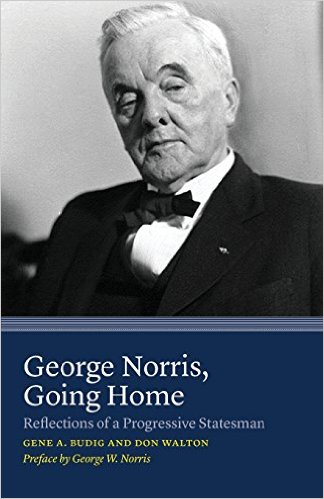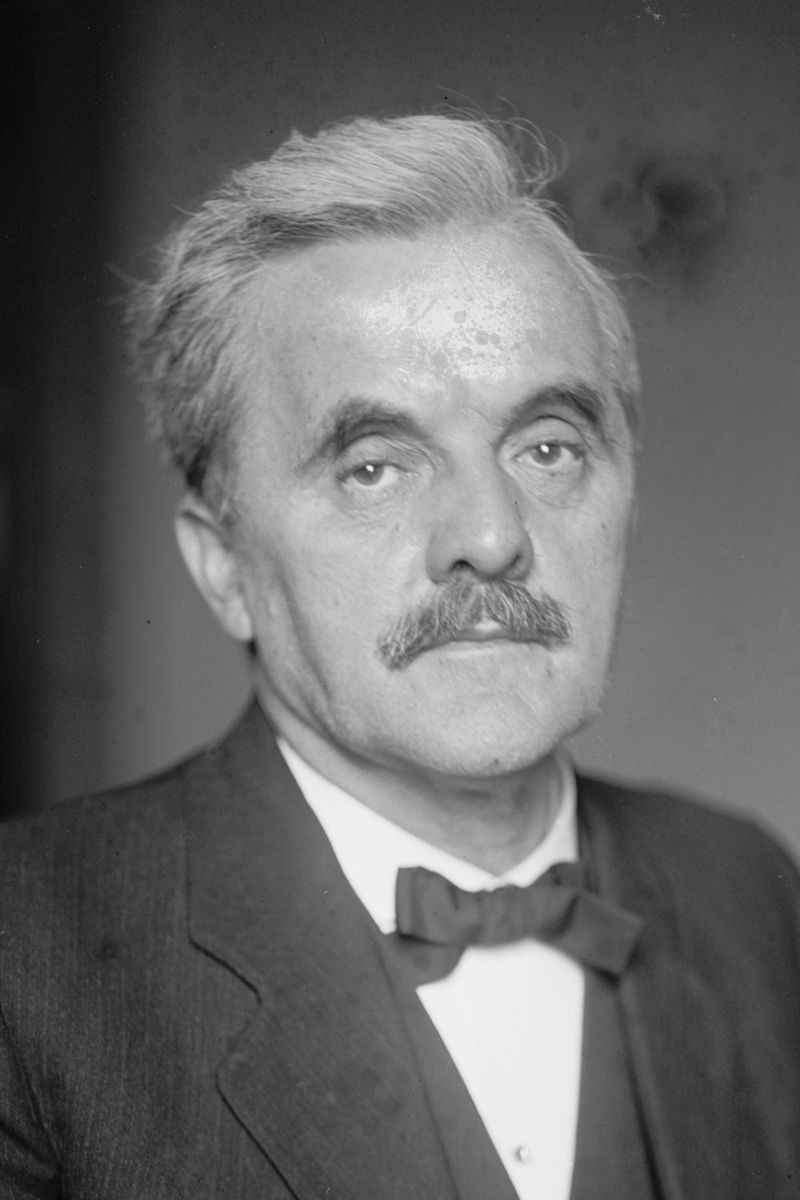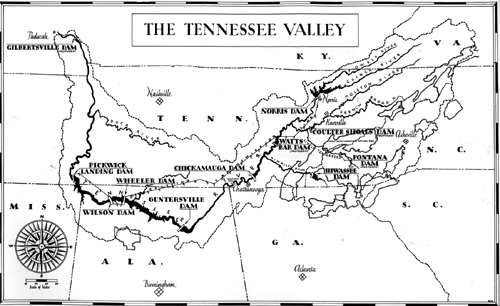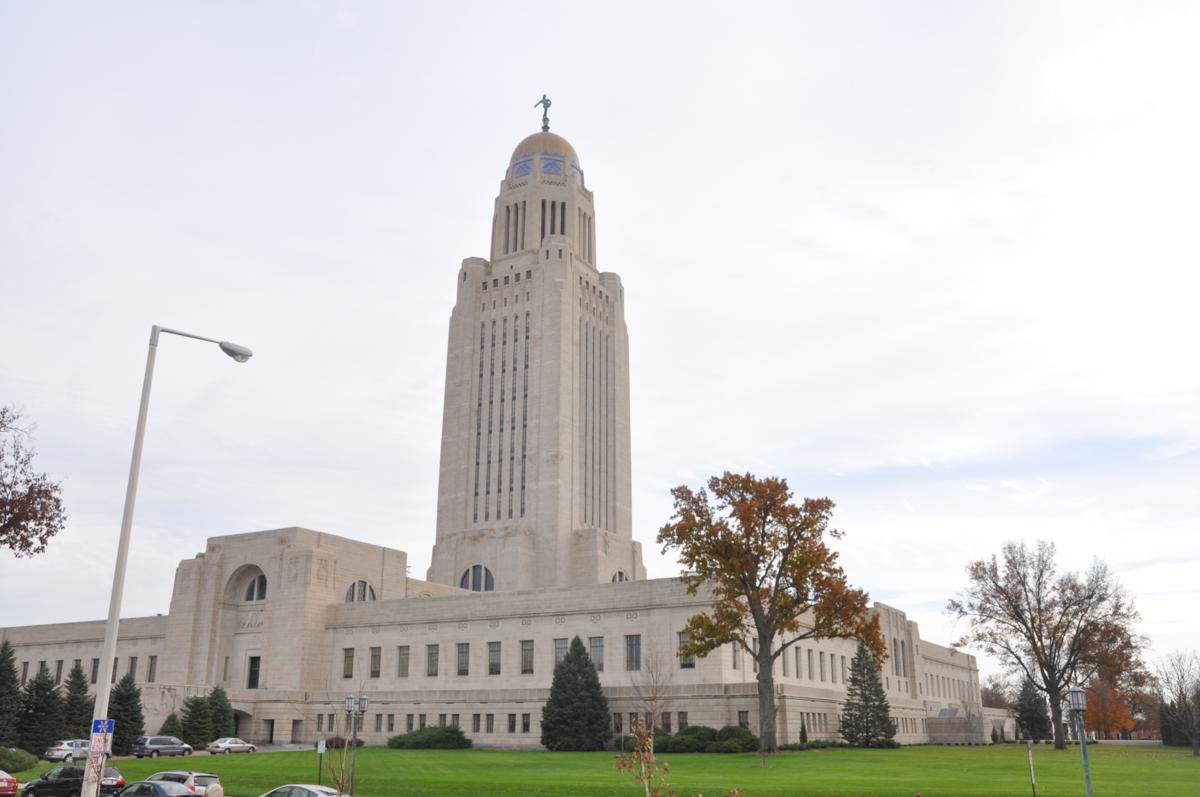George W Norris (1861-1944) of McCook Nebraska did much to make the United States what it became. He represented the third district in Congress for ten years, winning five elections, and then went to the United States Senate where he served five terms, thirty years.
 Published in 2013.
Published in 2013.
He supported and championed liberal and progressive causes, as did so many of his fellow Republicans in the era of Teddy Roosevelt, but if Republicans changed, Norris did not.
He left his mark in three distinct ways, one in Nebraska and the other two nationally.
1.During World War I the Federal government built a cataract of dams and power stations in northern Alabama at Muscle Shoals to power factories to produce munitions. At the end of the war, the assumption was that it would sold off for a few dollars to commercial interest who would exploit the complex of energy and factories.
But why should private corporations reap the benefit of the immense public investment in the complex, asked George Norris who then introduced a bill to have the Federal government operate the complex as a public utility.
This was socialism, cried the business interests, which grudging lifted the offered purchasing price a few dollars. Norris lobbied hard, bombarded the press with facts and figures during the Coolidge administration, and, because his opponents underestimated him, he secured a majority vote for his bill in the Senate. The first time it passed, it then died in conference committee with the House of Representatives.
 George W Norris
George W Norris
Norris was seasoned and he knew that it would be a long road, so he was ready in the Hoover administration with a second bill, re-worded but with the same effect, and it, too, passed, and this time it passed the through the conference committee and went to the president who dealt it a pocket veto.
When Norris presented his third version, Franklin Roosevelt was president, and Muscles Shoals became the first brick in the Tennessee Valley Authority. The hue and cry over the TVA raged for years but it came to be. See ‘The Wild River’ (1960) for the human side of the TVA.
 The TVA
The TVA
2. That the electricity produced by the damns sustained the second major theme of Norris’s career, Rural Electrification. Readers of ‘Sad Irons’ by Robert Caro know just how revolutionary electricity was in the lives of untold millions. This, too, was denounced as a Communist plot, along with fluoride in the water.
Few will realise how stoutly the advance of Rural Electrification was resisted. The arguments against it are the old chestnuts much in use today about the evils of big government and the corruption of the flesh by easy living. Having electricity on tap would sap the vital energies of the people, and thereby lay them open to ever greater repression conveyed by radio propaganda….. Yadda, yadda, yadda said the Ann Coulters of the day.
3. The Nebraska element is the unicameral legislature that remains unique among the fifty states. Norris had seen in Lincoln and in Washington how the two houses of a legislature work and arrived at a counter intuitive conclusion. The more representative the houses, the less representative was the legislation. Already this is too hard for an ABC journalist out to demonise someone.
Invariably the two houses would pass bills that differed from each other and these two versions would have to be reconciled in a conference committee, typically of five individuals. This is standard operating procedure, and it is still is. This reconciliation goes on behind closed doors an is usually reported to the two houses in a list of items at the close of session without debate or fanfare.
Norris had seen legislation completely changed by a conference committee of five. The greater the volume of legislation, the more was delegated to conference committees, the less oversight there was applied to them.
He started a one-man campaign for a unicameral legislature and he kicked off in Hastings on Platte to reform the Nebraska state legislature by making it unicameral to squeeze out of existence this process of the conference committee. In a one-house legislature, he reasoned, all business would have to be done in the house, i.e., in public.
He upped the ante by also insisting that this unicameral be non-partisan. His proposals offended both political parties and the Hearst Press, the ‘Omaha World Herald,’ which thundered against this double-edged communist proposal: doing the public business in public! The lies and calumny was dished out Fox News fashion.

Against this mighty array of forces, Norris had two even more powerful allies: The Dust Bowl and the Great Depression.
These catastrophes convinced many that things had to change. Business as usual was inadequate to either of these challenges. In 1934 Nebraska adopted a non-partisan unicameral legislature. The monumental state capital building, only recently completed, had allowed for a second smaller, upper house which then became used for, among other things, the venue for auditioning contestants in a state-song contest. Ever practical those children of the soil are on the Great Plains.
By 1936 Norris was persona non grata in the Republican Party and he ran for re-election as an independent. Norris won then, but in 1942 lost to a real Republican, Kenneth Wherry, who is perhaps best remembered for anticipating Ann Coulter in claiming that all homosexuals were subversives and perhaps the other way around, too. Wherry is accorded all honours in the Republican Hall of Fame and Norris is absent entirely.
Skip to content
